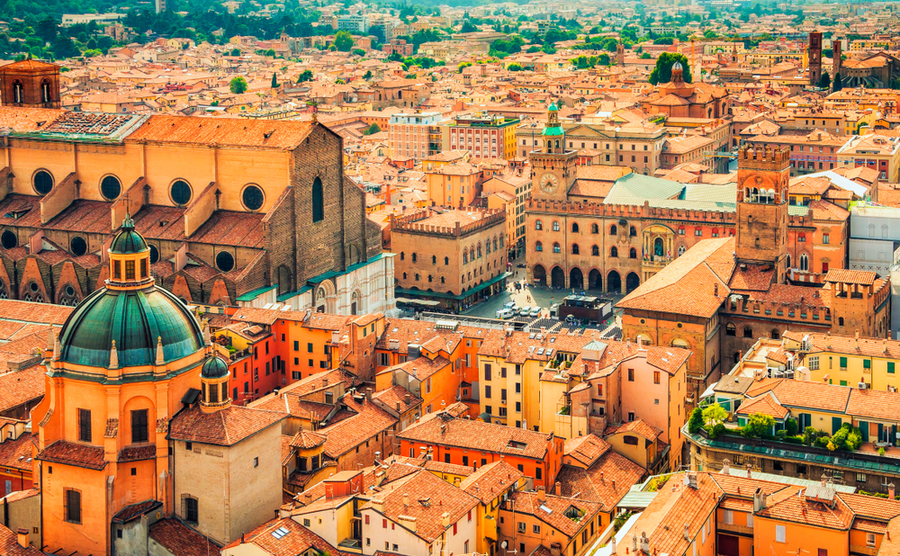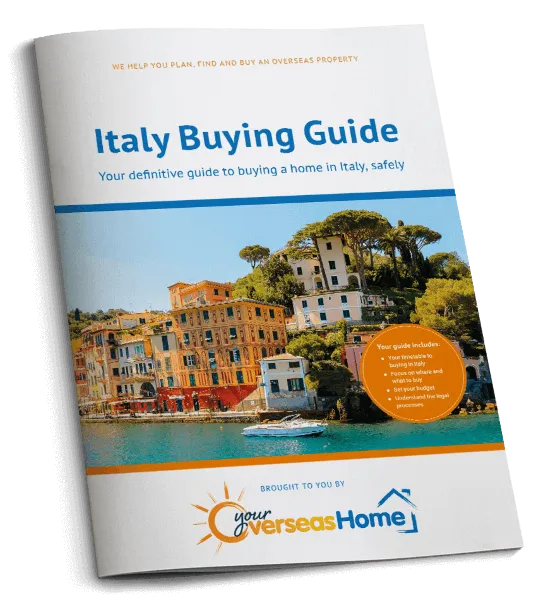Italy is on course to introduce a digital nomad visa, which will make working from home in Italy a viable option. See what it could mean for you.
Since the pandemic began, many of us have switched to working from home. That includes both self-employed professionals and company employees. These hard-working people are beginning to realize they could work almost anywhere. How about a penthouse in Florence, a villa by Lake Como or a house overlooking the rolling green hills of Sicily?
These Italian apartments have a spare room, perfect for your new office
A new visa agreed by Italian lawmakers on 28 March will allow non-EU citizens to move to Italy – with close family members and work online for a foreign company. It will be aimed at those “who carry out highly qualified work activities through the use of technological tools that allow them to work remotely, autonomously or for a company that is not resident in the territory of the Italian state”

Hot desking in Italy with a digital nomad visa
Why become a digital nomad?
In a way they are are trying to regularise a situation that is happening anyway. As people have been asking since the pandemic began, why pay high rents in a dismal, rainy city, when your home office could overlook a beautiful piazza, rolling hills, or the sparkling Mediterranean? Why not live in a nicer place, with a lower cost of living, enjoying a better work-life balance? Why not discover a new culture and cuisine in far more depth than a holiday? Italy offers the chance to visit so many wonderful places.
It’s about having the freedom to go wherever makes you happy, making a living using the internet. You’ll discover many like-minded people who connect and share their experiences, using social media and websites such as Nomadidigitali.it.
Who are digital nomads?
Forget images of young backpackers. The average age of a digital nomad is 40. Some of the most common professions are marketing, computer science, design, e-commerce and writing. You will also come across architects, accountants, people in the medical fields, researchers, property managers, estate agents, translators, professors and more.
Who is the Italian visa aimed at?
The idea of the new “nomadi digitali” visa is to attract talented professionals to Italy from outside the EU. They will contribute economically to the community they choose to live in. Buying local produce and frequenting local cafes and restaurants, they will help keep communities alive, especially if they choose more remote villages with smaller populations.
This is, however, clearly aimed at a particular kind of professional and high-tech worker. From the wording of the proposed bill the visa note certain words. People “who carry out highly-qualified work activities through the use of technological tools that allow them to work remotely, autonomously or for a company that is not resident in the territory of the Italian state”.
While the proposal has been approved, it may take a while for the details of the visa application requirements and the process to be drawn up. Applicants are likely to need a minimum income, health insurance, a clean criminal record and somewhere suitable to stay.
Length of digital nomad visa?
The digital nomad visa is expected to allow you to work legally in Italy for one year. While this is unlikely to be enough to set down roots, it could be the perfect trial period without giving up your job. It is also longer than the 90 days out of 180 days holiday stay you are allowed as a tourist.
Quota limits for work visas
As the new digital nomad visa applies to qualified workers, the visa is expected to have no quota limit. There are several qualified worker categories that are currently not subject to a fixed limit, such as for ICT assignments, executives or managerial employees assigned to the Italian branch of a foreign legal entity, highly skilled workers, university lecturers and professors, professional medical staff, translators, interpreters etc.
Immigration for other work purposes in Italy is based on a quota system, which is fixed annually by means of a Decree, the so-called “decreto-flussi“. In 2022 there is a cap of 69,700 workers from outside the European Economic Area (EEA). However, these are mostly for seasonal workers and subordinate work such as road haulage, building, and hospitality. The quota for the self-employed is only 500, and can require you to be registered with the relevant professional body for your line of work. However, if you do get a self-employed visa it is valid for two years.
Is Italy’s rural internet up to it?
There are villages and countryside properties in Italy that don’t have the fast internet speeds you are used to in the towns. However, the Italian government plans to fast-track them into the 21st century with a €1 billion revival project. Village mayors are also pushing to improve their connectivity, to encourage young people to stay and start up businesses, and to attract new residents. Italy has an increasing number of beautiful villages where you can work remotely and enjoy a peaceful village life.
Which are the best internet cities?
In 2021 Florence was ranked as the most digital city in Italy. This popular art city was closely followed by Milan, Bologna, Rome, Modena, Bergamo, Turin, Trento, Cagliari and Parma. These rankings took into consideration not only network technology, but also online availability of public services, utility apps, integration of digital networks, use of social media and public Wi-Fi networks. The ICity Rank survey was produced by FPA Digital 360.

Beautiful Bologna, well connected for working from home in Italy
It is noticeable that many of the highest ranking towns are cities in the north. However, the southern towns of Cagliari (Sardinia), Palermo (Sicily) and Bari (Puglia) have also demonstrated good digital use and are in the top 20. Naples (Campania) is currently in 26th place and Lecce (Puglia) in 27th place. Both say they will improve connectivity over the coming year.
Even better, all of these southern towns are near the sea, so you can pop down for a swim after work.










